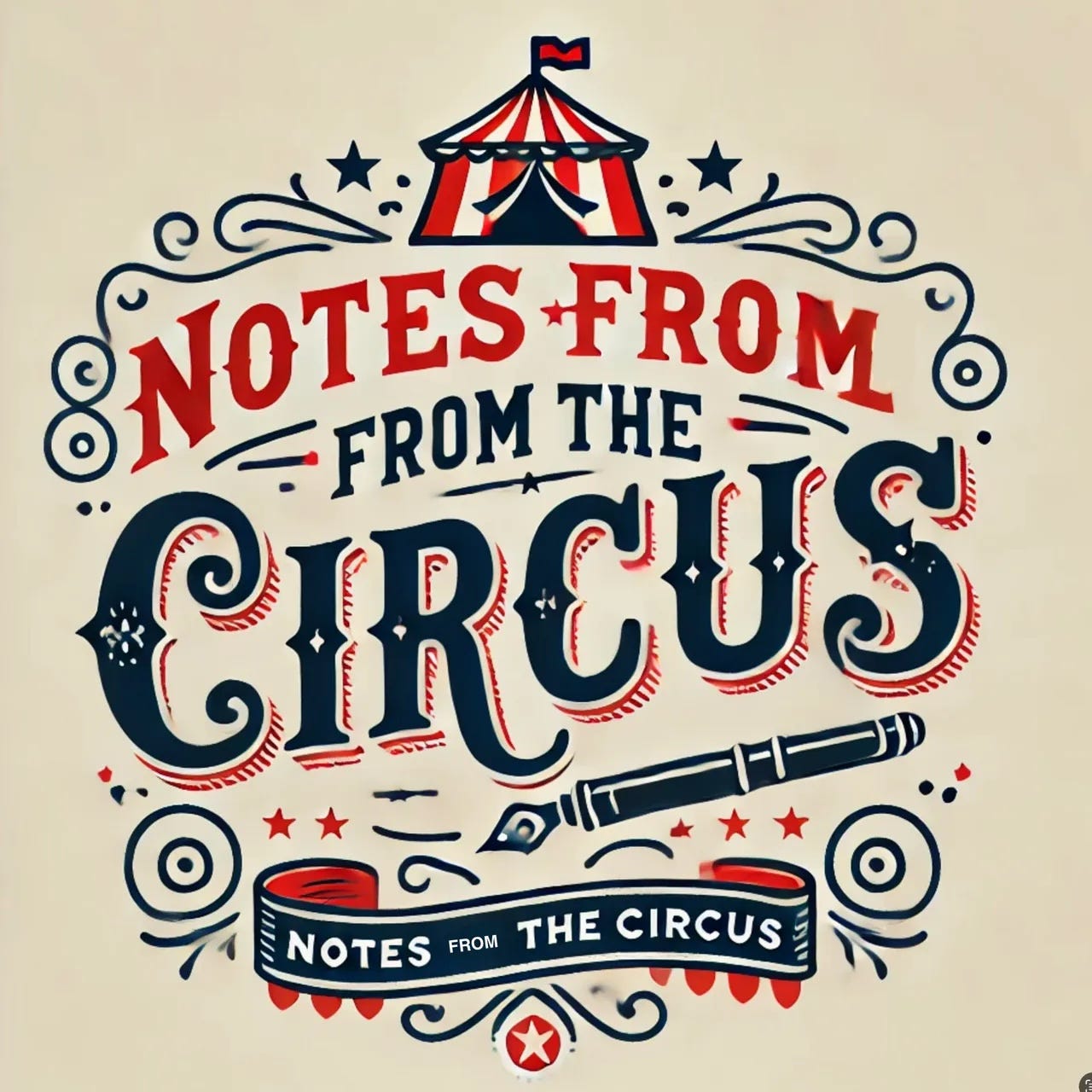There is Only One Way Out

I’ve been re-watching Tony Gilroy’s masterpiece Andor. In the first season, the story reaches one of its most evocative moral crescendos when Andy Serkis’ character, Kino Loy, delivers one of the most stirring monologues in contemporary screenwriting. “One way out” became the meme, the rallying cry. But nestled inside that monologue is the line that matters most:
“You need to help each other. You find someone who is confused—someone who is lost—you get them moving and you keep them moving until we put this place behind us.”
The birth of rebellion. The whole moral force of the democratic spirit, condensed into a single, painfully beautiful sentence.
But there’s another application of this ethic that matters just as urgently right now: making sure people understand who is building the prison and who is helping us escape it.
Because some people—JD Vance, Mike Johnson, the entire infrastructure of respectable conservatism they’re trying to maintain—desperately want you confused about which role they’re playing.
When Trump is gone, they’ll want you to believe they were prisoners too, trapped by circumstance, doing their best to moderate impossible situations. They want separation. They want their reputations insulated from Donald Trump’s moral collapse even as they build and maintain the authoritarian infrastructure that makes Trump’s presidency possible.
Tim Cook and other Silicon Valley executives who prostrated themselves before this historical example of nihilistic political pathology will insist they were pragmatists. But their choices were not in service of any greater good, but in service of greater profit. Their moral failures must not be excused. They must be made example of, brought to justice, so that future generations remember.
A former friend of mine—someone who once openly mused about fleeing the country if Donald Trump won—now works in the cryptocurrency industry and became a Trump supporter the moment Kamala Harris became the nominee. Why? Because he convinced himself that Trump was a necessary bulwark against what he imagined as Harris’s “antipathy toward capitalism.” Like many in the technology and venture-capital class, he built a little philosophical cathedral in his mind where his neo-Randian worship of the self was a noble cause, protecting innovation from democratic restraint.
But what he really did was let the green-eyed monster—or rather, the orange-eyed monster wearing Bitcoin aesthetics like ritual paint—take the wheel. He rationalized that the complete collapse of democratic institutions would be preferable to paying a higher capital-gains tax. He told himself that “bottom-up revolution,” built on blockchain, network states, and absolute property rights, would liberate humanity—when in reality he was daydreaming about feudalism with Wi-Fi, a world where he and people like him could escape democratic accountability entirely.
He wasn’t choosing freedom over tyranny. He was choosing license over responsibility, ego over citizenship, self-mythology over the republic.
A choice of what matters to him. Plain. Simple.
I went in a different direction. I started writing screeds like the one you’re reading now, which in the inchoate phases of this endeavor, had a handful of executive recruiters excited about the prospects of working with me. After I published The Plot Against America, they mostly stopped replying to my emails and text messages.
For me, in that moment, I realized there was, as Gilroy surmized in his moral storytelling from the fictional dilemma of the prison scene in the tenth episode of Andor, there is only one way out.
My former friend made his choice when crypto mattered more than republic. The recruiters made theirs when my honesty became unemployable. Vance made his when Thiel’s money bought his trajectory from sympathetic narrator to Vice President advocating “extra-constitutional” power. Johnson made his when Christian nationalism mattered more than constitutional constraints. Cook made his when he commissioned that gold ornament. They chose. And we choose now—not once, but in every moment we either help someone see clearly or allow the confusion these men desperately need to persist. Not in some dramatic act of heroism, but in the patient, unglamorous work of making separation impossible, of keeping the context visible, of refusing to let time and reputation management obscure who built what and why it matters. There is only one way out. Moving in an orientation that moves closer towards the people I love, without leaving anybody behind. And that path leads around and through those who have broken faith with their shared humanity.
The wire still holds. But only if we help each other see who’s trying to cut it while claiming to repair it.
May love carry us home. But love without accountability is sentiment, not justice. And justice requires memory that refuses to forget who chose what when it mattered most.




Well said, Mike. I liked your mention of the “neo-Randian worship of the self,” because the Rand poison has long been an obsession of mine. It permeates not only the tech-bro community but pretty much all of the right, from Paul Ryan to Donald Trump (who, I once read, was actually a fan of her books. No, really!)
Mike, Tony Gilroy, deeply grounded in history, did indeed create a two season masterpiece with Andor — superb ensemble acting, laser-sharp writing, gorgeous visual design, and most importantly, a vision of the costs of resistance — to everyone, stripped of romanticized narrative. The heart-breaking scene in “Only One Way Out” brings home- yes, resistance is the only way, but not everyone can swim😿